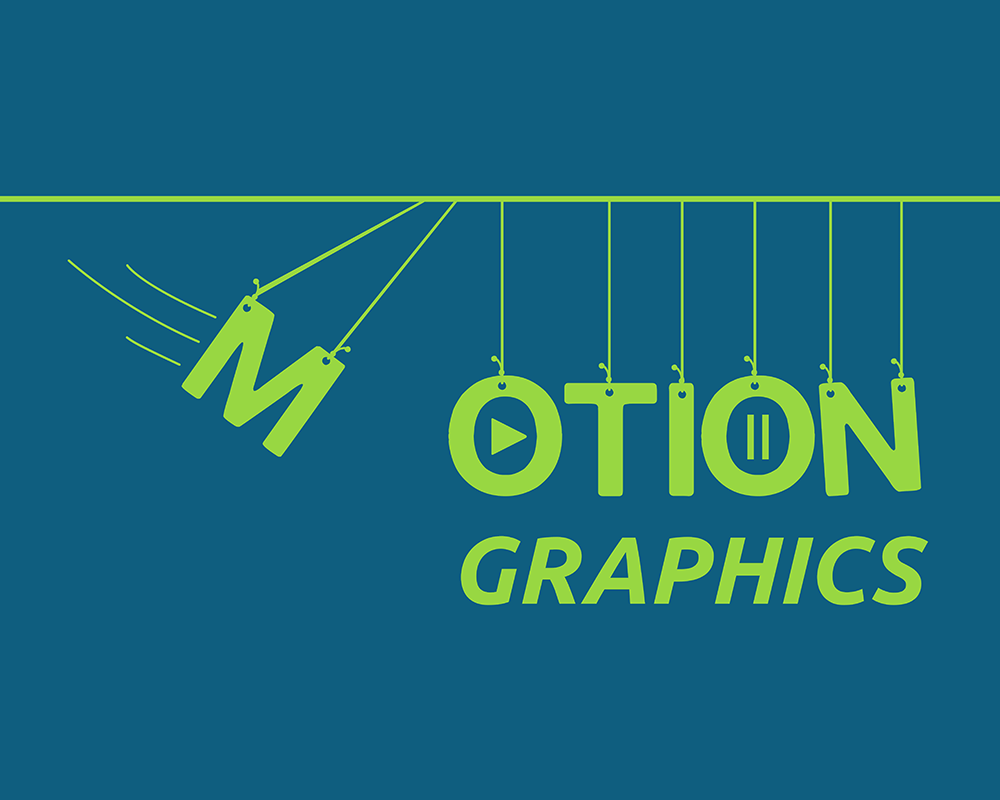Motion graphics can be seen in just about everything from television, movies, commercials and more. Whether you are a beginner or advanced motion graphics artist there are a set of skills that you should have that allow you to become a great motion, graphic designer. In this article, you will find 10 of the most vital skills that any motion graphic designer needs to push their work to the next level, and help them excel in their career.
Graphic Design Skills
This one may seem like a no brainer, but it still needs to be pointed out because it is of the utmost importance to a motion graphic designer. After all motion design is virtually bringing graphic features to life through animation. Giving yourself that knowledge of graphic design can allow you to push your motion design work. Especially if you are freelance, where most often you will be asked to not only make the virtual elements move but to also create them. Sure, you may be working at a studio where your job is to take virtual elements a graphic designer created and make a moving motion graphics piece. That being said, you can never predict the types of projects you will be on, and knowing how to not only move the 2D elements but also create them is vital to your success.
Traditional Art Skills
Having knowledge of traditional art is very helpful during your design process and can give you an eye for the best way to communicate your motion design to the audience. During most motion graphics pieces, it’s always easier to sketch out your ideas on paper than it is to build it on the computer only to find out that it’s not working. Sketches can be done much faster, allowing you to quickly brainstorm different ideas, ultimately speeding up your workflow. You also won’t feel as bad if you have to toss an idea since you didn’t have to spend much time on it.
An Understanding of Animation
As a motion graphic designer, you need to be able to bring 2D elements to life through movement. To do this you must use animation, animation in motion graphics is more than just setting a few keyframes. You also need to have a strong foundation in the fundamentals of animation and how things should move in order to create appealing work. The principles of animation apply just as much to you as they do a character animator. You need to be able to know where to exaggerate, where to ease in or out, or what type of timing works best. You might have the greatest design, but if it is not animated well it can make your motion design piece fall flat.
3D Design Skills
3D elements have found their way into motion design, and they are being used more and more. You can find it in a 3D logo, an intro to a TV show, a commercial and more. As a motion graphic designer, you need to have this skill set in order to be able to keep up with the changing industry. There is a wealth of 3D applications to choose from, it’s up to you to take the time to learn one. You should not be limiting yourself to just 2D motion design, expand your knowledge into 3D and it will open up more opportunities for you.
An Understanding of Typography
Typography is heavily utilized in motion design and often times the driving force behind the motion graphic. For example, a motion design may only use type to convey the product, company or service to the viewer. In fact, typography is so important we’ve created an entire article on it. Since type is so prominent you need to have an understanding of typography; what virtual features make up a typeface, what compliments a design, and what is the easiest for the audience to be able to read. The right typeface can send your motion design to the next level.
An Understanding of Color Theory
All your motion designs are going to utilize color. As a motion graphic designer, you need to have a strong understanding of color theory, and what colors convey different moods and feelings to an audience. You need to give your color choice a lot of thought. What is it that you want this piece to communicate? Strength, Dependability? These questions can all determine the color scheme for your motion design. For example, if you are creating a motion graphics piece about fall you wouldn’t want the colors to be blue, grey and white. This would make it feel like winter. Check out this article on Color Theory for Graphic Desing to learn more about color theory and how it relates to your designs.
Creative Thinking
Your job as a motion graphic designer is to bring a graphic element to life; it’s also your job to know the best way to do this. You may be working with very little information from a client and the idea may not be clear. This is where creativity comes into play, being able to take a simple idea and turn it into a complex and appealing motion design piece.
Technical Skills
This day and age motion graphics are all done on computers, so it’s important that you have the technical skills to be able to adapt to new products, servers, and systems. There are numerous programs, operating systems, and virtual servers that a motion graphics artist must master in order to excel in the industry. You should be able to hit the ground running when presented with a new project and not be held back by your technical skills.
Interpersonal Communication
Even though this skill doesn’t pertain to your actual design skills, it is still just as important. Great motion designs always start with communication, this can mean with a client or your creative director. A motion graphic designer needs to be able to articulate their ideas and concepts to clients or employers clearly. As well as any concerns or changes they may have. Clients are typically not designers, so it’s up to you to communicate your ideas to them in a way that’s understandable and clear.
Originality
It can be easy to follow trends, and jump on a particular style or look that is being used. This can make your work resemble all the rest and you won’t stand out. Think of your style as your signature, with every project you encounter you have a chance to imprint this signature style into the minds of the audience, making it memorable and your own. Every motion graphic designer should have their own style. Of course, this can take a long time to develop, but you will grow into your own style. For example, look at Tim Burton, his artwork is very unique and the moment you see one of his sketches you recognize it as his own.






